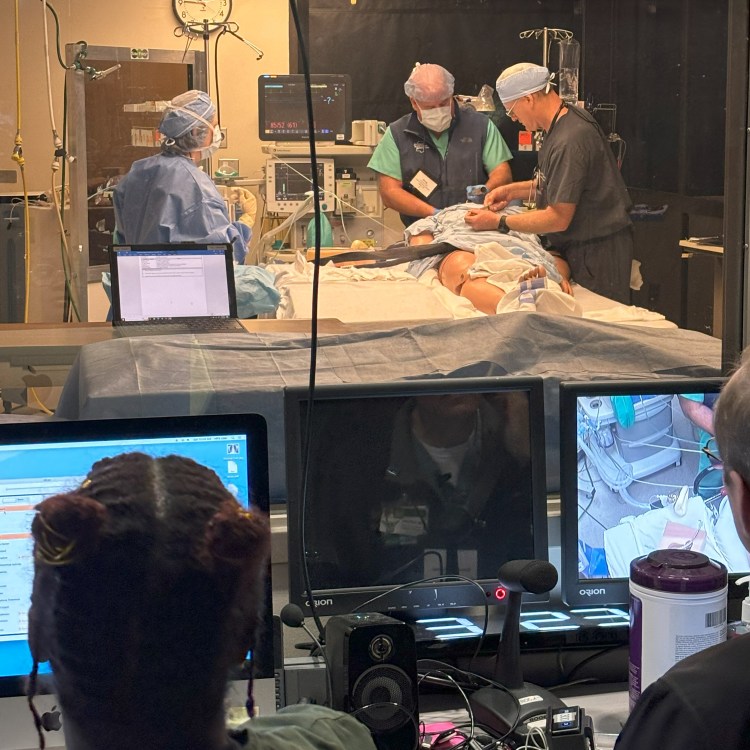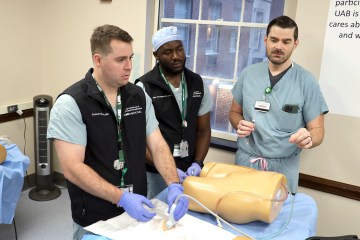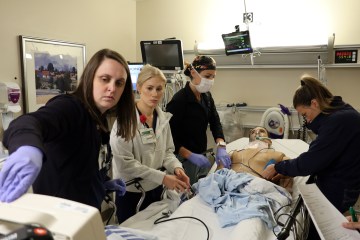MOCA offers learning, practice in realistic setting

Throughout the year, UAB Clinical Simulation and the Heersink School of Medicine’s Department of Anesthesiology and Perioperative Medicine offer the Maintenance of Certification in Anesthesia (MOCA) simulation course to help health-care providers meet requirements set forth by the American Board of Anesthesiology (ABA).
Endorsed by the American Society of Anesthesiologists, MOCA courses are designed to realistically re-create challenging clinical cases and enable participants to problem-solve in a manner that is similar to a clinical experience.
“The MOCA simulation course is important because it allows learners to experience managing crisis situations that they may only encounter infrequently,” said MOCA course director James Hunter, M.D., associate professor in the Department of Anesthesiology and Perioperative Medicine. “Though there is value in learning about medical management of the specific case presented, the real value lies in learning and practicing, in a realistic setting, how to manage a crisis efficiently and effectively.”
Further, the one-day simulation experience fulfills the ABA’s Practice Performance Assessment and Improvement Part IV requirements, with the collaboration between Clinical Simulation and the Department of Anesthesiology offering an ideal vehicle through which to do so.
“Clinical Simulation offers a backbone of equipment and personnel experienced in medical simulation, crisis management, simulation scenario creation and debriefing,” Hunter explained. “The Department of Anesthesiology faculty provide content expertise in the creation of specific anesthesia-related scenarios, determining how the simulated patient will respond to specific anesthetic interventions and during debriefing.”
The synergy makes for an effective and well-received course, with Hunter noting that the program consistently receives “very positive feedback.”
“Even though it’s a long and sometimes stressful day, learners have universally praised the program,” he said. “We have yet to receive any negative feedback at all.”
To learn more, visit here.




0 Comments